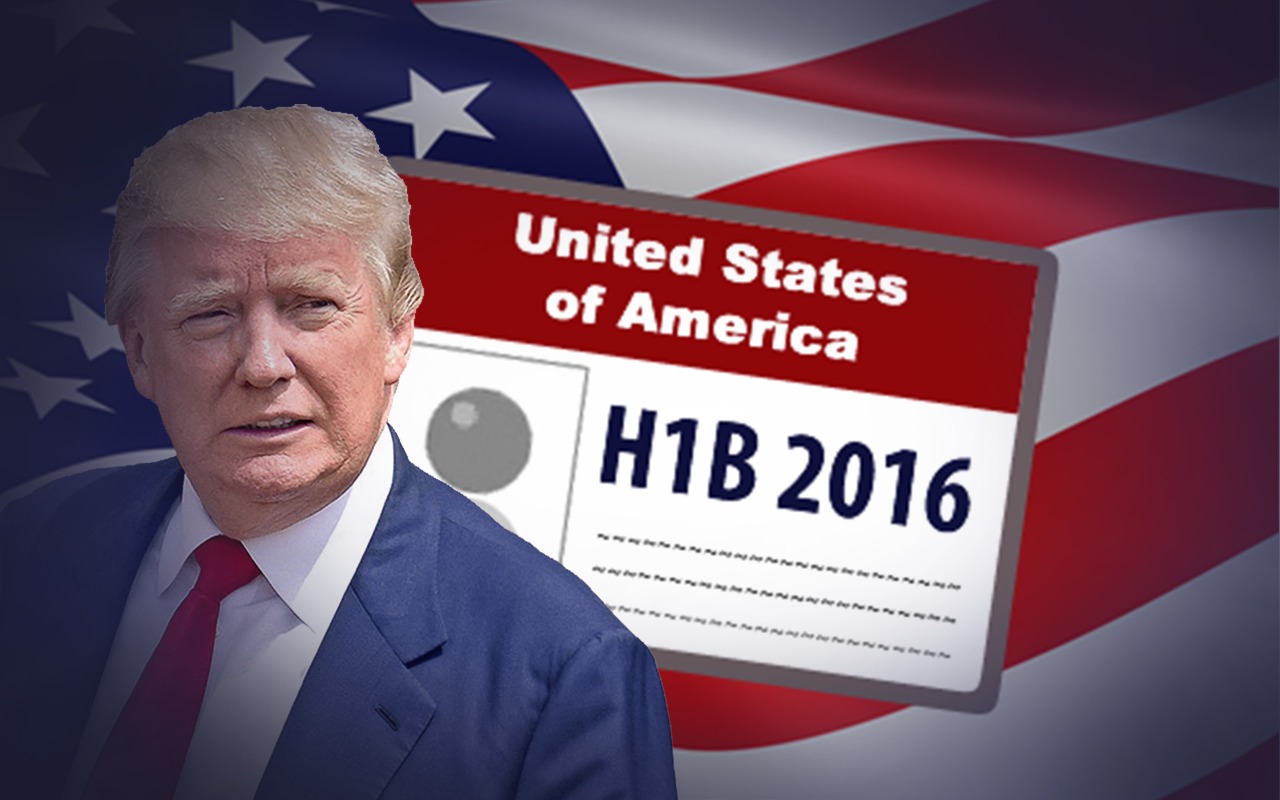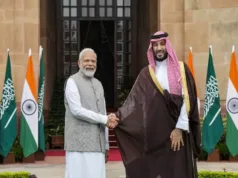H-1B Visa Issue
The issue of H-1B visa has attained a degree of political currency in recent times, elevating its status to a critical element of India- US diplomacy. However, as the CoViD19 has left nations to fend for their own in the economic sphere, President Trump decision to extend the ban of the entry of foreign workers to the end of 2020 which is likely to impact H1B, H-2B and specific categories of H-4, J and L visas has sent jitters to H-1B holders in India. This decision is an extension of April 22 executive order which banned the entry of foreign workers for 60 days.
H-1B Visa
H-1B is a non-immigrant visa category that allows permit foreign nationals to gain employment in “specialty occupations” that require bachelor’s or above degrees. The initial duration of the H-1B visa is three years, which may be extended for a maximum of 6 years. The present cap is 65,000 visa with an additional 20,000 visa for professionals who graduate in Masters or doctorate from US institutions. These are the useful source of skilled overseas labour in the STEM field where the demand for skilled (American)workers overwhelms the supply.
The Challenge of the Virus
The Corona pandemic driven executive orders also complement the conservative nature of working visa policy US has been following after the election of President Trump,who has shown decisive intent towards reducing the inflow of workers from other countries. This intent is manifested in the executive orders which nullified the existing lottery system by shifting towards the system of minimum income bracket which was raised from 60,000$ to 90,000$ for the H-1B visa applicants. The White House described its rationale as a move designed to attract high skilled workers which should not undercut the American labour market and ensure that equilibrium between labour demand and labour supply is maintained as many of the H-1B visa holders also are likely to lose jobs as well alongside the American workers due to the economic disruption caused bythe Coronavirus pandemic.
The move seems to be backed by the statistics which reflect the progressively deteriorating economic conditions of United States. United States has progressed from the historic low unemployment rate of 3.5% in February to 14.7% in May. Four senators namely Ted Cruz, Tom Cotton, Chuck Grassley, and josh Hawley advocated for such immigration policies in the month of May which would have been better not only for skilled American workers during the time of economic contraction but also for H-1B visa workers as well who are facing layoffs
The ban is likely to impact 525,000 foreign workers presently outside the US until the end of 2020. The business leaders have opposed the move, which reduces their ability to recruit highly skilled labourers from overseas countries for jobs that don’t entice worthy applicants from the United States prioritizing Americans for scarce jobs.
How such moves shapes India and US ties
Although the argument of economic disruptions due to the Corona Virus pandemic seems to be the key driver of the policy, such policy was a long time coming since limiting the incoming of the foreign workforce was a key electoral promise made by Donald Trump for his Presidential candidacy. Case in point was the RAISE act endorsed by President Trump in 2017 which would have cut legal immigration including the business visa by 50% under the slogan of “Buy American, Hire American”
H-1b visa has been one of the key element of India -US cooperation. The issue of visa relaxation was raised by Prime Minister Modi during the visit of President Trump in February 2020. Indian PM Modi has also highlighted that people to people relations have been the vital foundation of US India friendship and the Indian diaspora has been an enormous contributor to the US economy
Indian Foreign Secretary in his address to National Association of Software and Service Companies (NASSCOM) addressed the issue of H1-B visa and advocated for a “realistic yet an effective approach“from US while highlighting the importance of technical edge that skilled Indian workforce provides to US companies. Furthermore,the contribution of overseas workers from India in the fight against COVID19 will prove instrumental as US suffers from the deficiency of doctors and Nurses in the jammed hospitals as cases of COVID19 increase. The share of Indian nationals in H-1b has been around 70% from 2015-2018 and are likely to bear the biggest brunt of the ban
The COVID19 provides the much-needed excuse to allow President Trump to go forth with his conservative immigration policies with the least resistance from India. However, it provides an incentive to India to create an infrastructure and conducive business atmosphere with accessible credit facilities within India so that these skilled labourers offer their services to the economic growth of India. While it may crush the American Dream of many Indians, it may spark an ‘Indian dream’ within them, given the right incentives.









